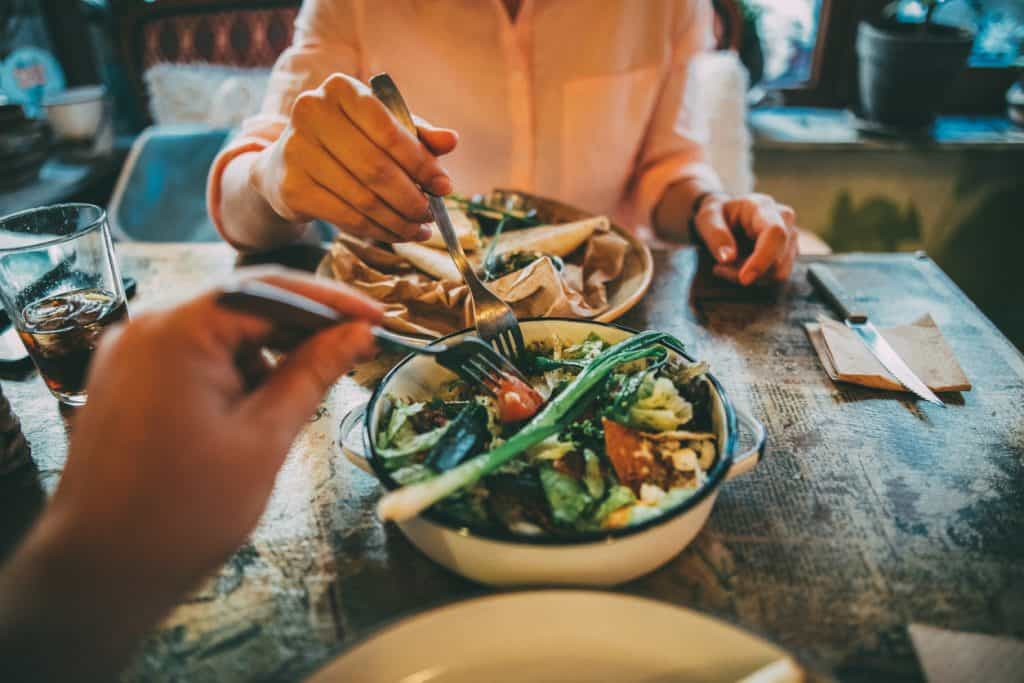
You’ve decided to eat healthier. Great! You’ve set goals, made plans and motivation is high. There’s just one problem. Every time you mention it to your partner they roll their eyes. When it’s their turn to cook they opt for takeaway, or maybe your kids groan and refuse to eat the new healthy dinner option that you just spent hours preparing. You begin to feel that all your hard work is for nothing. That you can’t achieve what you want because your partner or family are just making it too difficult.
Sound familiar? There’s a number of factors that can make it challenging to spread your healthy habits to the loved ones around you. Before you go hassling them until one or both parties give up, you need to consider a few things.
Are they ready for change?
While you may be ready and willing, it’s highly likely that those around you don’t share your enthusiasm. They may be more than happy with their current diet, even though you believe it could be improved upon. If they’re happy with the way things are then their motivation to change is going to be very low. They may accept one or two small changes but a complete dietary overhaul is going to be overwhelming and, in their eyes, unnecessary.
Start with just one change at a time and ease into it. Gradual change is going to be more sustainable for both you and your partner or family. Drastic dietary overhauls tend to be too difficult to maintain and you’ll soon find yourself back at square one.
Playing devil’s advocate for a second, it’s also important to clarify that the changes are necessary and/or truly healthy. Your family may be unwilling to join you in the latest internet-craze detox diet because it’s an unsustainable, restrictive way of eating. There is so much conflicting information out there that it is near impossible to know what you should and shouldn’t be eating. You’re better off getting some sound nutrition advice from a qualified professional before trying to convince your partner to adopt a new way of eating.
Do you need them to change?
If it’s your children that are resisting change then I would have to say YES, you do need them to change. It is really important to teach them healthy habits in childhood to set them up for life – this article will give you some good strategies to start implementing that.
However, if we are talking about adults then no, you don’t really need them to change. Of course, we all want what’s best for our loved ones, and it would make things a bit easier for you. At the end of the day however, you don’t need them to change to make your own diet healthier. That’s purely on you.
Communication is key.
If your family or partner understand the why behind your new behaviours and what those behaviours are, they’re more likely to understand where you’re coming from and try to help you achieve your goals. Have a conversation, if there is something specific you need or want them to do, break it down into simple action points. For example, if your goal is to have more vegetables at dinner and your partner is responsible for the grocery shopping then write them a shopping list that details the types and quantities of vegetables that you need for the week.
If you still don’t have them on board then you need to think about what challenges that creates for you. Now put in place strategies to deal with those challenges. Sit down and actually write a list of the challenges and your strategy next to it, that way when it arises you have a clearly defined plan of attack.
For example, you may work late 3 nights a week. Your wonderful partner may cook dinner on these nights however they always place portions fit for an Olympic athlete! Your strategy to overcome this may be halving the portion and saving the other half for leftovers the next day.
Going forward
The first thing to realise is that healthy eating is not all or nothing. Just because your partner bought pizza home for dinner doesn’t mean that your diet has failed or that all your efforts are for nought. Focus on the snacks and meals that you do have control of. If you know that dinner is going to be prepared by your partner and they are notorious for highly processed takeaways then make sure breakfast and lunch are healthy, balanced meals.
Even though you may rely on your partner to prepare dinner because there are nights when you just can’t do it yourself, there is 1 simple step to make any meal healthier and it will take you next to no time to prepare. Fill half your plate with vegetables! Have a bag of pre-cut salad or vegetables on stand-by in the fridge for those nights when you are really time poor. Apply this to absolutely every meal – including the takeaway pizza scenario. Fill up on vegetables and you are going to eat less of the energy dense pizza, thereby reducing the total calorie intake for that meal.
Eventually those around you will be able to see the benefits that your healthy diet has had for you, whether it’s weight loss or having more energy to be physically active. Seeing these positive results is going to be more motivating than you nagging them or trying to force changes upon them. By being a role model you are more likely to bring them on board and encourage them to adopt a healthier lifestyle too.
If you’d like further help with your nutrition goals, have a chat to one of our dietitians.



